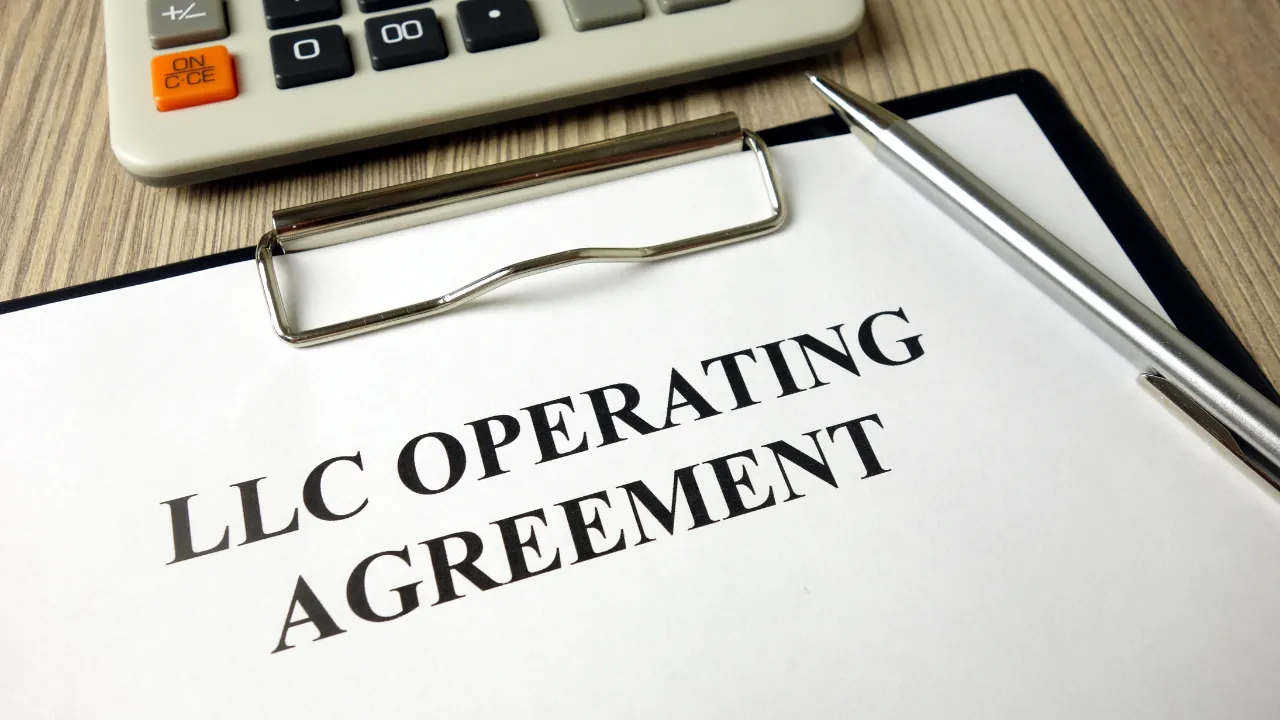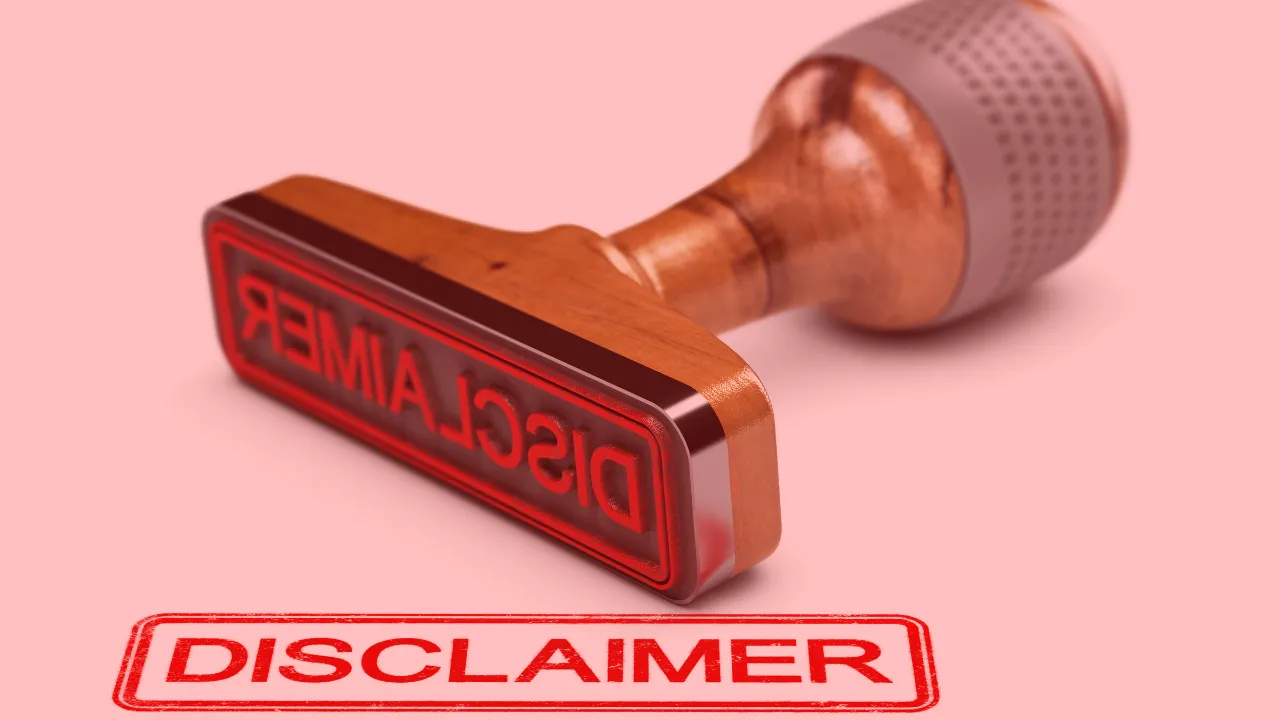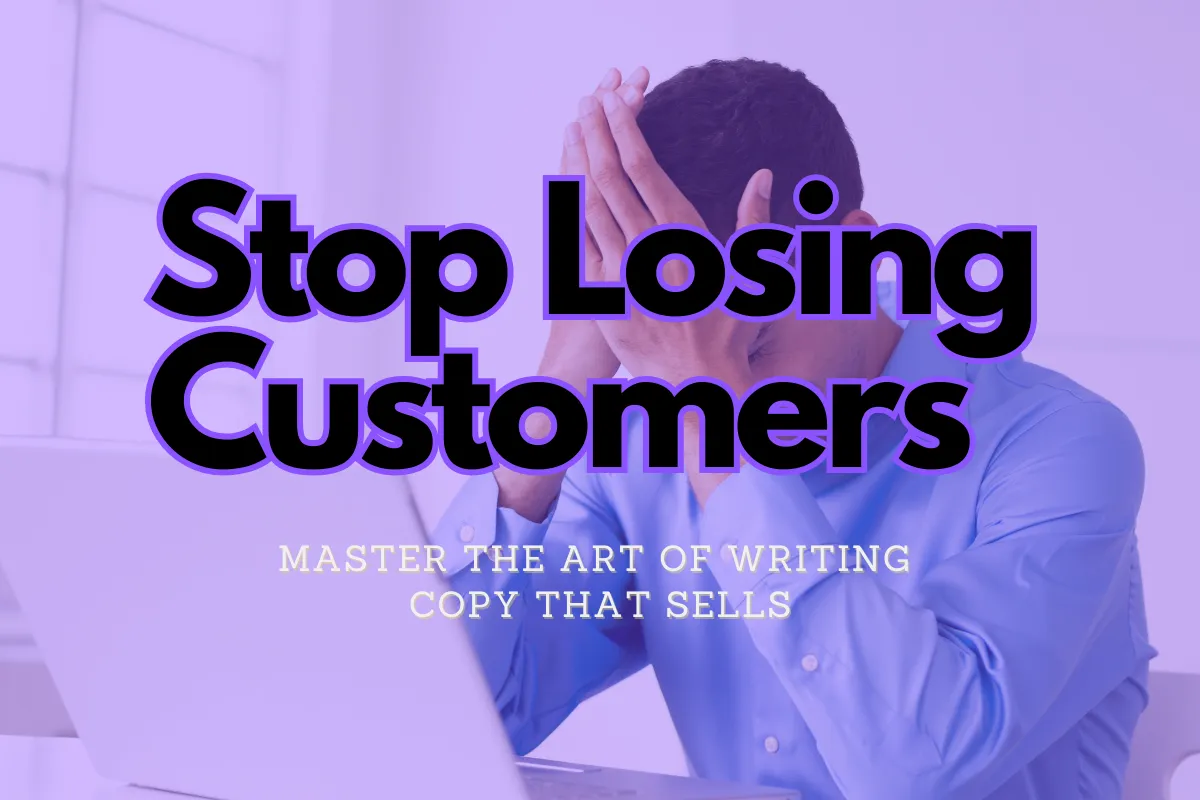Best Entity to Operate as a Digital Asset Entrepreneur
Navigating Business Entities for Digital Asset Entrepreneurs: A Definitive Guide
Digital asset entrepreneurship has emerged as a prominent field in today's digital age, with entrepreneurs engaging in the creation, management, and monetization of various digital products such as eBooks, online courses, e-commerce stores, social media content, and email marketing sequences.
Choosing the right business entity is crucial for these entrepreneurs, as it impacts liability, taxation, and overall business operations.
This article aims to provide a comprehensive guide on the best entity to operate as for digital asset entrepreneurs, particularly those who do not have brick-and-mortar locations. We will also discuss the importance of using disclaimers to protect assets from litigation.
Why Choose an LLC for Your Digital Asset Entrepreneurship Journey
The best entity to operate as a digital asset entrepreneur would be a Limited Liability Company (LLC). An LLC presents a versatile business framework that extends liability protection to its proprietors, commonly referred to as members.
This means that the personal assets of the members are separate from the assets of the company, protecting them in the event of any legal or financial issues.
An LLC allows for pass-through taxation, meaning that the profits and losses of the business are passed through to the members' personal tax returns. This can be advantageous for digital asset entrepreneurs, as they can avoid the double taxation that can occur with corporations.
Establishing and maintaining LLCs proves to be straightforward and budget-friendly, in contrast to alternative business structures like corporations. This can be beneficial for digital asset entrepreneurs who may be starting small and looking to minimize administrative burdens.
Operating as an LLC provides a balance of liability protection, tax benefits, and ease of setup, making it an ideal entity for digital asset entrepreneurs to pursue their business ventures.
Understanding Digital Asset Entrepreneurship
Digital asset entrepreneurship involves creating and monetizing digital products and services. This innovative field opens a realm of possibilities for creating and monetizing digital products and services. In a landscape where online presence is paramount, mastering the art of digital assets can set you on a path to success.
This path can include eBooks, online courses, membership sites, digital marketing services, e-commerce stores, and much more. The primary appeal of this business model is the low overhead costs and the potential for passive income. One of the key advantages of this path is the flexibility it offers. Entrepreneurs can choose from a wide range of digital products and services to create a business that aligns with their interests and skills.
For instance, creating eBooks allows for the sharing of knowledge or creative work, while online courses provide a platform for teaching specialized skills or expertise.

Exploring the Landscape of Digital Assets: Types, Benefits, and Challenges
Membership sites offer exclusive content or services to a community of subscribers, generating recurring revenue. Digital marketing services are tailored to cater to businesses seeking to enhance their online visibility, providing a range of services including SEO, social media management, and email marketing. E-commerce stores allow entrepreneurs to sell physical or digital products online, reaching a global audience.
The appeal of this business model also lies in its scalability. With digital products and services, there are minimal costs associated with producing and distributing additional units, allowing for significant growth potential without the need for physical expansion. This scalability can lead to passive income streams, where entrepreneurs can earn money continuously from products or services that require little ongoing effort to maintain.
The digital business path offers opportunities for creativity, flexibility, scalability, and the potential for passive income, making it an attractive option for aspiring entrepreneurs looking to build a sustainable online business. Here are the most common types of Digital Assets:
Common Types of Digital Assets:
- eBooks and Books: Digital Publishing and Self-Publishing.
- Online Courses: Educational content and training programs.
- Ecommerce: Online stores selling physical or digital products.
- Social Media Content: Influencer marketing and brand partnerships.
- Email Marketing: Automated email sequences and campaigns.
Benefits:
- Low initial investment.
- Flexibility and scalability.
- Access to a global market.
Challenges:
- High competition.
- There is a need for continuous content creation and marketing.
- Managing digital rights and intellectual property.
Types of Business Entities for Digital Asset Entrepreneurs

There are several types of business entities that digital asset entrepreneurs can choose from, each with its own set of advantages and disadvantages. The main entities to consider are Sole Proprietorship, Partnership, Limited Liability Company (LLC), and Corporation (S-Corp and C-Corp):
- Sole Proprietor: The simplest type of business ownership is sole proprietorship, which is held by just one person.
- Partnerships: businesses owned by two or more individuals. It can be limited or general in nature.
- Limited Liability Company (LLC): Provides liability protection with an adaptable management structure.
- Corporation: Separate legal entity, can be S-Corp or C-Corp.
It is important for digital asset entrepreneurs to carefully consider their business goals, liabilities, and tax implications when choosing a business entity. Consulting with a legal or financial advisor can help entrepreneurs make an informed decision on the best structure for their specific needs.
Detailed Breakdown of Business Entities
A detailed breakdown of business entities refers to a comprehensive analysis and explanation of the diverse types of legal structures that a business can choose from when setting up its operations. This breakdown typically includes the following types of entities:
Sole Proprietorship
Description: One of the most straightforward and widely selected structures for new businesses is sole proprietorship. This type of business is a tributary and operated by a single individual, with no separate legal entity between the business and the owner. Benefits:
- Easy and inexpensive to form.
- Complete control for the owner.
- Simplified tax preparation.
Disadvantages:
- Unlimited personal liability.
- Harder to raise capital.
- There is a lack of continuity in the business structure.
Best Suited For: Entrepreneurs starting small, low-risk businesses.
Partnership
Description: All partners participate in both the management and profit-sharing aspects.
- Limited Partnership: One general partner manages the business, while limited partners invest but do not manage.
Advantages:
- Easy to establish.
- More capital is available.
- Shared responsibilities.
Disadvantages:
- Unlimited liability for general partners.
- Potential for conflicts between partners.
Best Suited For: Businesses with multiple owners who want to share responsibilities and profits.
Limited Liability Company (LLC)
Description: A unique business framework combining the liability protection of a corporation with the tax advantages and operational versatility of a partnership
Advantages:
- Limited liability protection.
- Flexible management structure.
- Pass-through taxation.
Disadvantages:
- Varying state laws.
- May entail higher formation costs compared to a sole proprietorship or partnership.
Best Suited For: Entrepreneurs seeking liability protection with flexible business operations.
Corporation
S-Corporation
Description: A special type of corporation created through an IRS tax election. Earnings and losses have the potential to flow through to your individual tax filing.
Advantages:
- Limited liability protection.
- Pass-through taxation.
- Ability to raise capital.
Disadvantages:
- Stricter operational processes.
- Limited to 100 shareholders.
Best Suited For: Small businesses that can meet the IRS requirements and want the benefits of pass-through taxation.
C-Corporation
Description: A distinct legal entity independent of its owners, providing the most robust safeguard against personal liability.
Advantages:
- Limited liability protection.
- No limits on the number of shareholders.
- Easier to raise capital.
Disadvantages:
- Double taxation.
- More regulatory requirements.
Best Suited For: Businesses looking to scale significantly and possibly go public.
Key Considerations for Choosing a Business Entity
Selecting the proper business entity is a critical decision with far-reaching effects on your business's success and development. Here are some essential factors to consider when navigating this decision:
- Liability Protection: Ensuring personal assets are protected from business liabilities.
- Tax Implications: Understanding how each entity is taxed and the potential tax benefits.
- Cost and Complexity of Setup and Maintenance: Considering the initial and ongoing costs of forming and maintaining the entity.
- Flexibility and Scalability: The ability of the business entity to adapt and grow with the business.
- Compliance and Regulatory Requirements: Ensuring the business complies with federal, state, and local laws.
Opting for the correct business entity is a pivotal decision that can profoundly impact the success and durability of your business. It is advisable to consult with legal and financial professionals to help navigate the complexities of choosing a structure that best fits your unique circumstances and objectives.
Importance of Disclaimers to Protect Assets
Disclaimers are essential for digital asset entrepreneurs to protect them against potential legal issues. They clarify the limits of your responsibility and help mitigate the risk of litigation.

Types of Disclaimers:
- General Disclaimers: Cover the broad scope of your content and services.
- Affiliate Disclaimers: Disclose relationships with affiliate programs.
- Earnings Disclaimers: Clarify that income results can vary.
- Copyright Disclaimers: Protect your intellectual property.
Best Practices:
- Place disclaimers prominently on your website.
- Use clear and understandable language.
- Update disclaimers regularly to reflect current practices and laws.
Disclaimers help set clear expectations and boundaries for customers or users, thereby minimizing the likelihood of disputes. They can also help businesses limit their liability by specifying the extent to which they can be held responsible for certain outcomes or damages.
Additionally, disclaimers can be used to address specific legal requirements, such as informing users about data privacy policies or terms of service.
Case Studies and Examples
Case Study 1: The entrepreneur's decision to form an LLC (Limited Liability Company) for their eBook and online course business highlights a strategic approach to business management. By opting for an LLC structure, the entrepreneur benefits from the flexibility that this type of entity provides.
LLCs offer a combination of the pass-through taxation of a partnership or sole proprietorship with the limited liability protection of a corporation, making them an attractive option for many small businesses.
In this case, the entrepreneur can operate their eBook and online course business with a level of personal liability protection. This means that in the event of legal disputes or financial difficulties, the entrepreneur's personal assets are shielded from potential claims against the business.
As the business grows and evolves, the LLC structure allows for easy scalability and adaptability. It provides a framework that supports the expansion of offerings, partnerships, and revenue streams without requiring significant changes to the business structure.
Overall, by choosing an LLC for their eBook and online course business, the entrepreneur has positioned themselves well to navigate the complexities of entrepreneurship while enjoying the benefits of liability protection and operational flexibility.
Case Study 2: Forming an S-Corp as a digital marketer can have various advantages. By choosing this business structure, the two digital marketers can enjoy pass-through taxation, which means that the profits and losses of the business are passed directly to the owners' personal tax returns.
This can potentially lead to tax savings compared to a traditional C-Corp structure. Additionally, like S-Corp, the two digital marketers can share management responsibilities. This can lead to more efficient decision-making processes and better utilization of each partner's skills and expertise. By dividing responsibilities, they can focus on their individual strengths while working together towards common business goals.
Forming an S-Corp as a partnership between two digital marketers can provide a solid foundation for their business, combining tax benefits with shared management to help drive growth and success in the competitive digital marketing industry.
Lessons Learned: The importance of aligning the business entity with long-term business goals and operational needs.
Conclusion
Choosing the right business entity is crucial for digital asset entrepreneurs to ensure liability protection, tax efficiency, and operational flexibility. While there are several options available, it is important to carefully consider the specific needs and goals of your business.
Additionally, using disclaimers effectively can help protect your assets from litigation. As always, it is advisable to seek professional legal and financial advice to make the best decision for your unique situation.
This article was brought to you by Troilus J Moss

To your growth through influence,
Troilus J Moss | Director of Sales & Marketing
P.S. Ready to unlock Unlimited, Unstoppable Traffic? Take the first step now: Get started today! ©2023 TopAd101 Marketing
Meet Troilus J Moss
Troilus J Moss is a seasoned Digital Asset Entrepreneur and Digital Marketing Professional, renowned for his exceptional skills in copywriting and creative content development. Serving as an influential figure in the digital realm, he fulfills roles as an active entrepreneur, coach, and the Director of Sales and Marketing at TopAd101 Marketing, where his strategic digital marketing campaigns have propelled businesses to new heights.
Beyond his entrepreneurial endeavors, Troilus dons the hat of an esteemed editor, crafting exclusive insights and valuable knowledge for digital asset entrepreneurs through his Digital Asset Insider Newsletter. His commitment to empowering entrepreneurs with innovative information is evident in his contributions to prestigious publications such as "The Marketing Toolbox Blog," and "The Digital Asset Entrepreneur Blog,"
With a deep understanding of innovative technologies like Artificial Intelligence and automation, Troilus stands as a trailblazer in the dynamic digital landscape. His fervor for fostering business growth and harnessing technology to optimize efficiency distinguishes him as a visionary in the digital marketing domain.
Troilus actively enriches TopAd101 Marketing's YouTube channel with invaluable insights and tips to support entrepreneurs in navigating the digital sphere successfully. Stay abreast of the ever-evolving digital landscape and access his latest videos by subscribing to the channel today!







